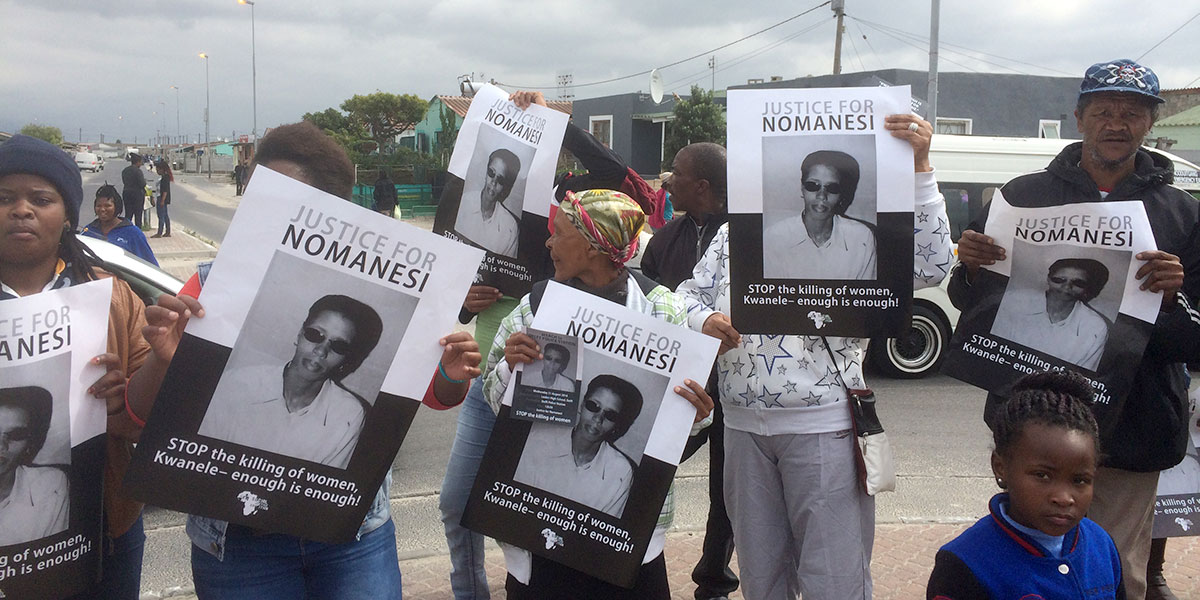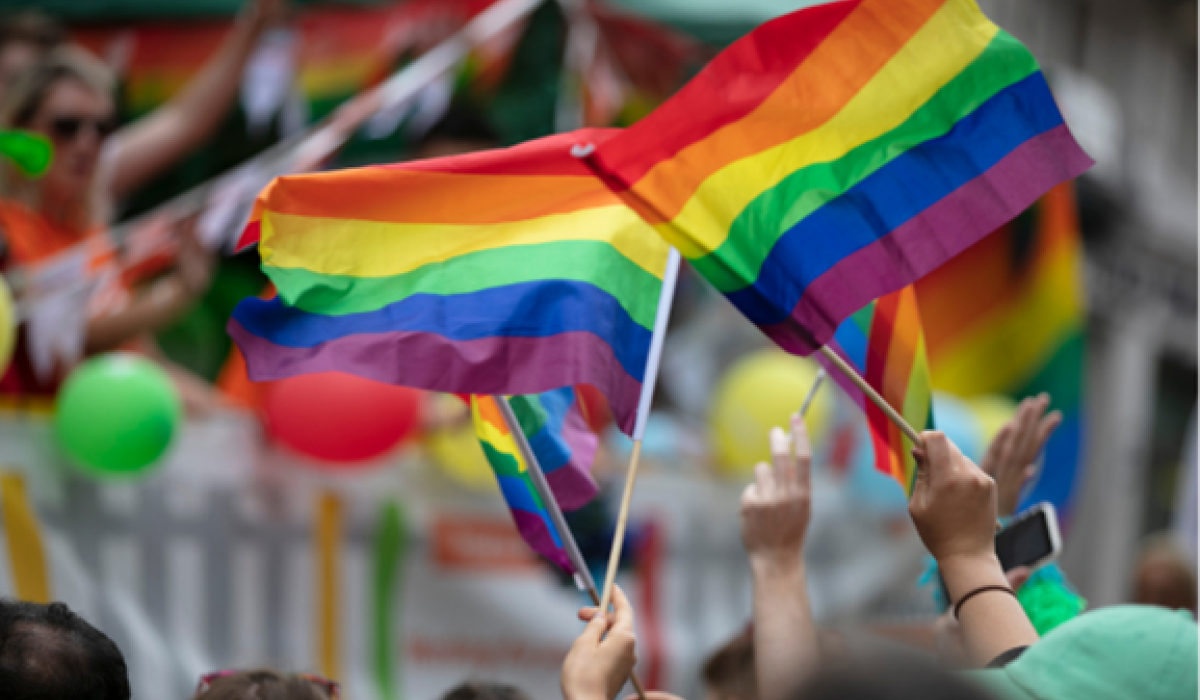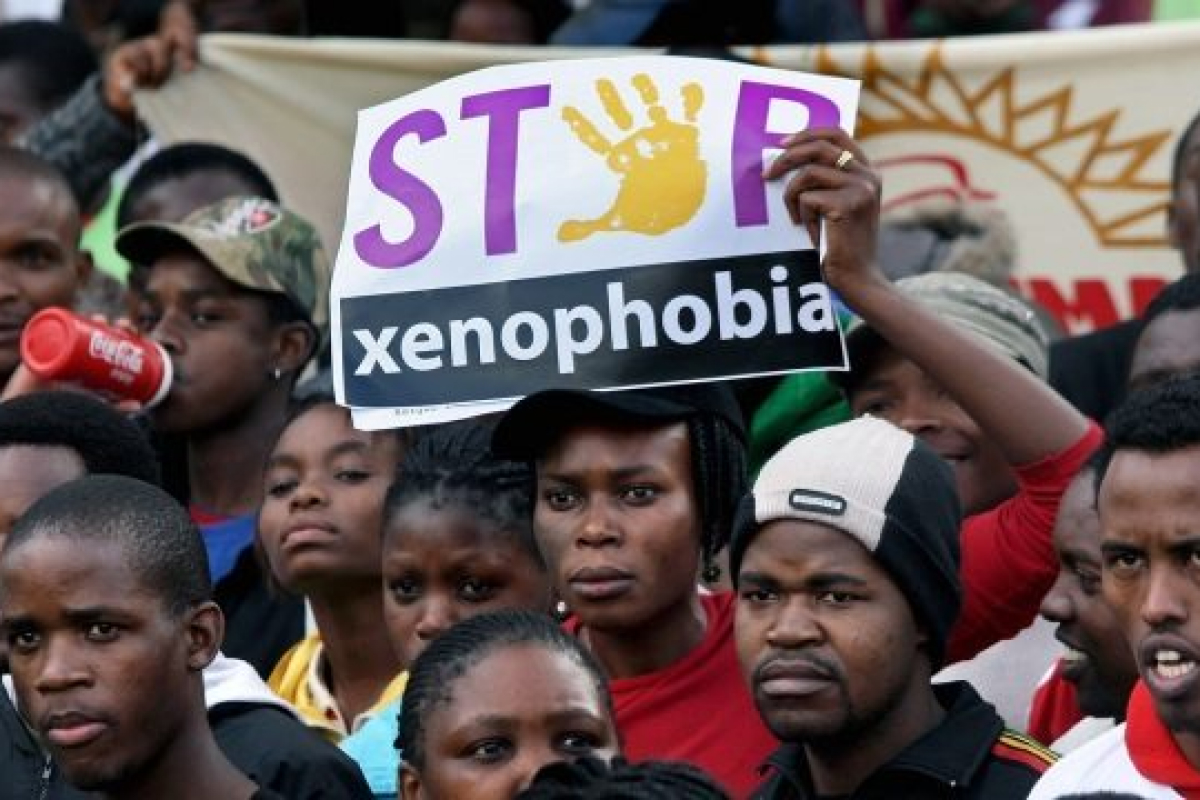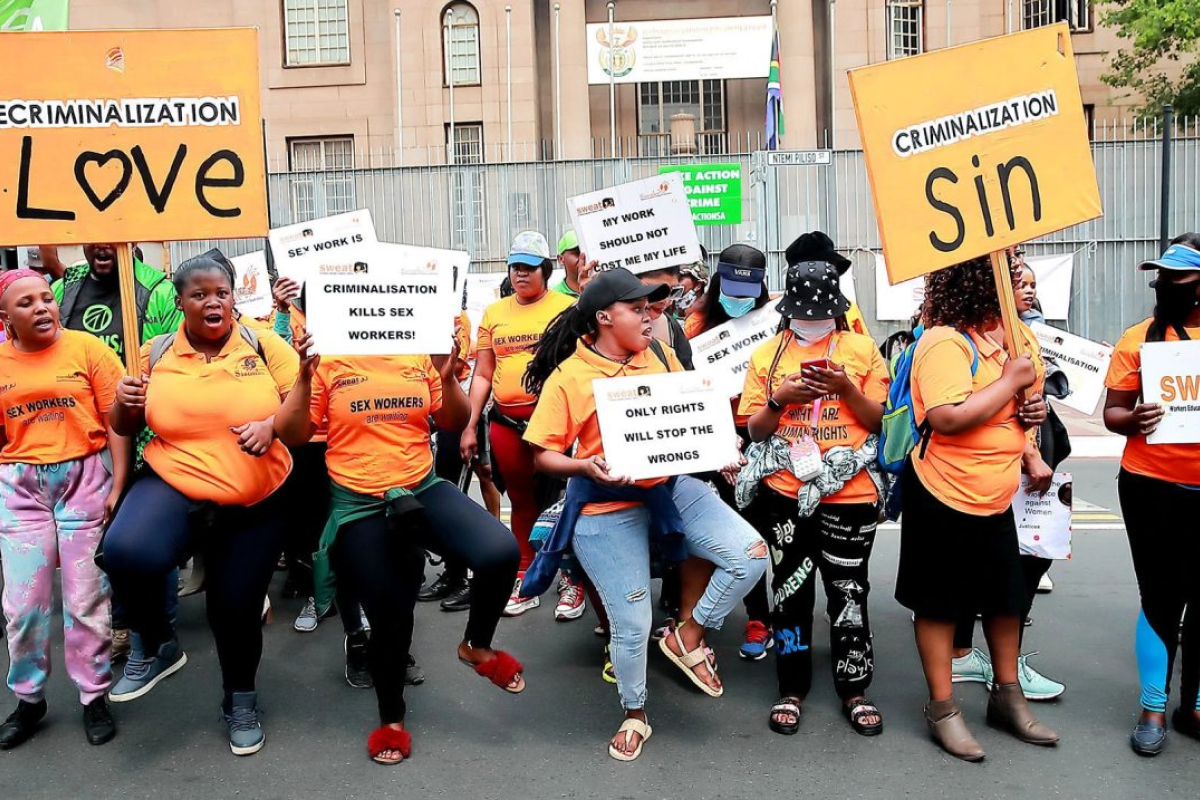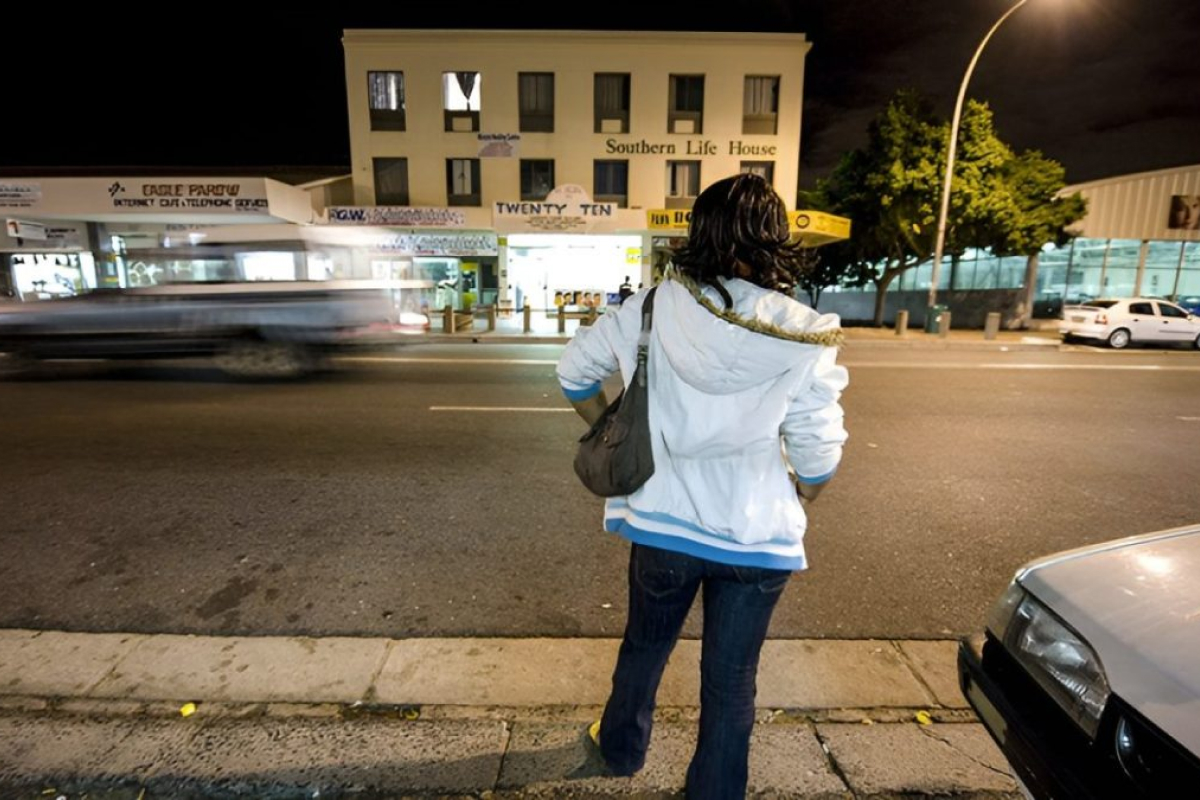It is Wednesday 31 of August, mid-morning in Delft, a township on the outskirts of Cape Town. The same township notorious for its high crime rate, substandard schools, high rate of unemployment, and government-built housing schemes such as the N2 Gateway.
On Busira street next to Leiden High School, a group of around eighty people, including members of Social Justice Coalition and Sonke Gender Justice, as well as Delft community members, are dancing and holding posters bearing the face of a 38 year-old woman, Nomanesi, an unemployed mother of three who went missing and was last seen by her family on the 6th of August.
On Friday 12 August the family was contacted by Tygerberg Hospital to identify the remains of a body that had been found in a bush on the 9th of August (Women’s Day in South Africa), in Symphony Way Road. Her body was so badly burnt that her family could not identify her – but when they saw the nailpolish on the woman’s fingernails, they suspected it to be Nomenesi. DNA tests results confirmed that the charred remains were indeed those of Nomanesi Klawushe.
The group gathered next to the high school (which one of Nomanesi’s children attends), are singing songs calling for justice. Posters show a picture of Nomanesi and the words: “STOP the killing of women.” That people need to be reminded of this, is shocking.
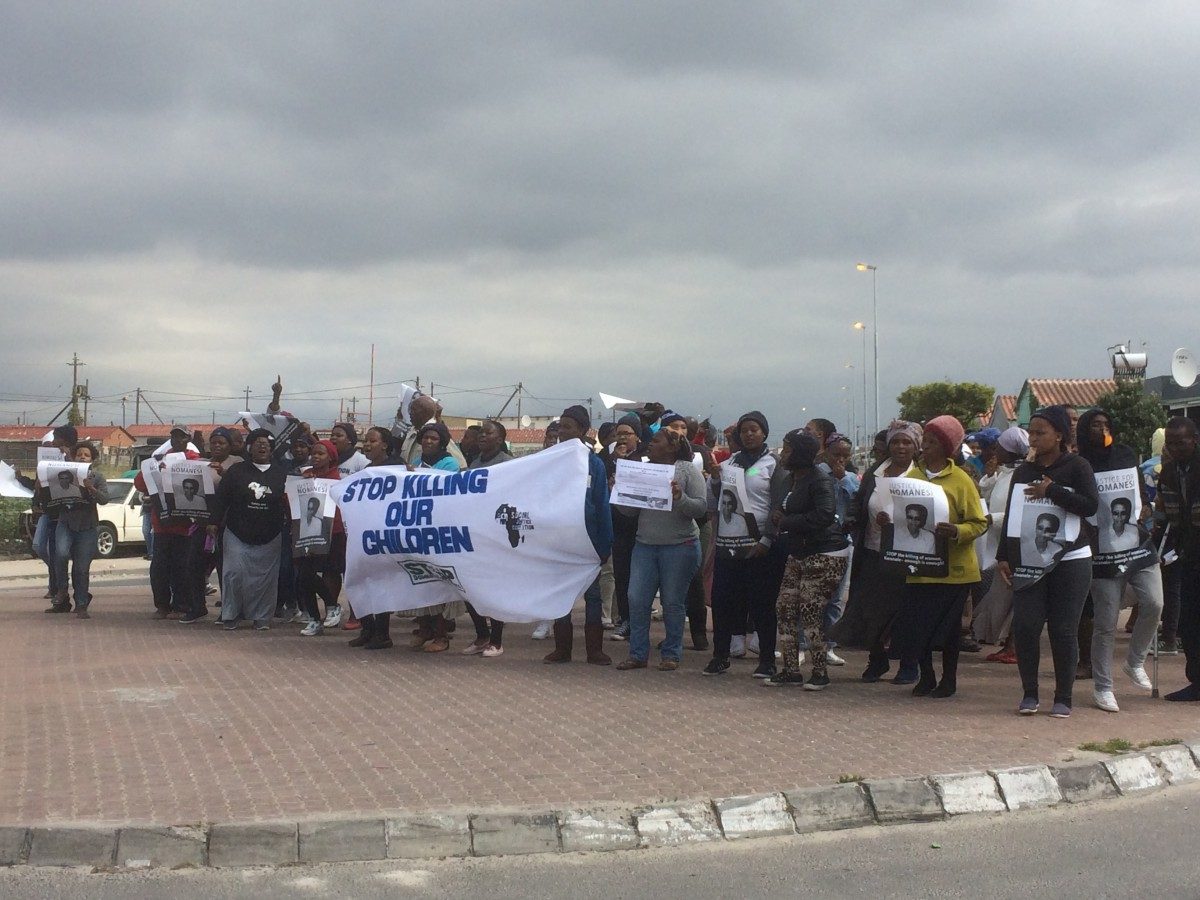
Shortly after joining the march, Chumile Sali, a young leader from Social Justice Coalition addresses the crowd. The plan is to march to Delft police station, to hand the police a memorandum with demands from the community. They are calling on the South African Police Service to conduct a speedy and thorough investigation, calling on the community of Delft to provide any information to SAPS and demanding that the killing of women and children in our communities come to an end.
The marchers seem impressed by this young man and what he is saying, they seem to like this idea of walking to the police station. The elderly man standing next to me continues singing and dancing and shouting “Masiyeni” (in English “lets go”).
We are now marching to the police station and we’re all singing and dancing in Nomanesi’s name. I overhear conversations around me about how sad Nomanesi’s story is. Behind me, two ladies chat, saying that they are so tired of the killing of their children; the murder of loved ones has become an “everyday thing”, they say.
In January earlier this year, Delft made headlines when a 27 year-old man raped a nine year-old girl and burnt her to death. Gruesome murders, the disregard of the lives particularly of women and children, and the absence of justice are a theme that reverberates among the community of Delft.
After a short walk we arrive at our destination. The emotion of the marchers – their pain, sadness, fears and anger – have built into a crescendo. The singing gets louder as we approach the gate, and there are more people dancing now, some shouting “maziphume ezi zinja” (“these dogs must come out”) – referring to the police. One woman says angrily, “they don’t know their job”. The police has become the target of the community’s fury and grief.
Chumile, standing in front of the crowd, shouts “Amandla!” and the people respond willingly, “Awethu!” Sikhangele ‘SK’ Mabulu, a trainer from Sonke Gender Justice, steps up to address the crowd. He calls on the community of Delft to unite against this violence to report when they see or hear anything suspicious and to help the police with investigations.
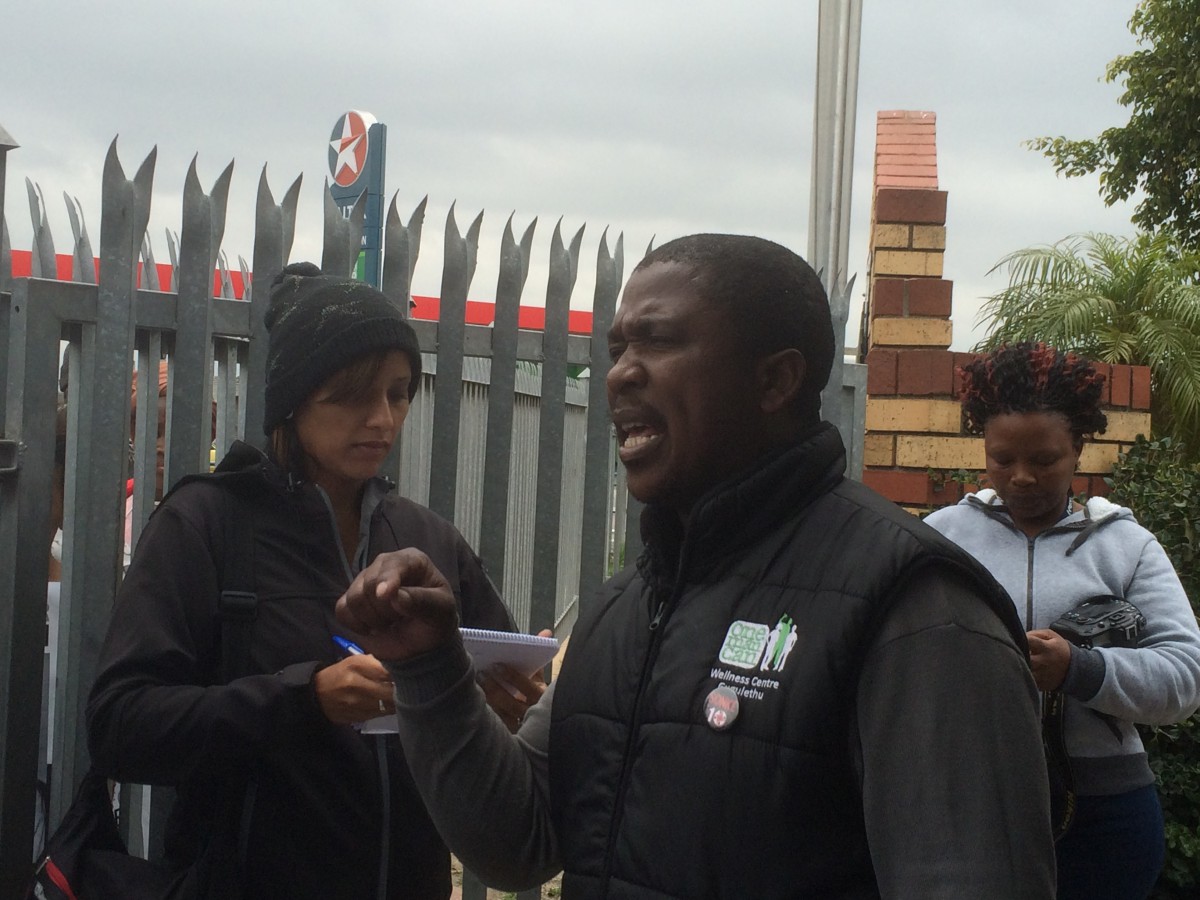
Colonel Sedrick Hermanus, a tall man with a grey and white moustache emerges from the police station. He receives the memorandum. As he signs it people seem cheerful and I wonder if this signature will change things – will the police of Delft be swifter with their investigations into cases of gender-based violence and will they make sure that women and children in Delft are safe from violence?
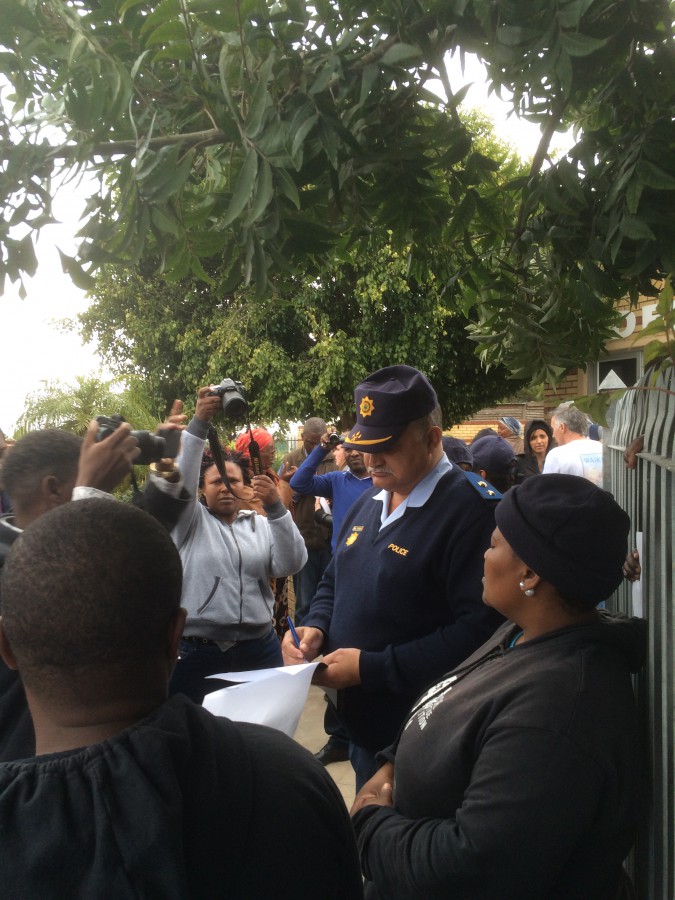
Colonel Hermanus makes a speech promising the community of Delft that SAPS will do all they can to catch the perpetrators who murdered Nomanesi.
The crowd seem unimpressed. This community has heard speeches like this before from the police. A woman shouts angrily from the crowd: “The police are useless, they don’t do their job and nothing will change.”
The memorandum has been handed over and signed. The job of Social Justice Coalition and the community of Delft is finished for today. But the question remains: will there be any change in the protection of the Delft community – particularly of women and children? Will the police be more responsive and sympathetic to cases of gender-based violence in future?
The march, the mobilisation of the Delft community and the handing over the memorandum to the police are essential tools in demanding police action over issues of violence. But the momentum needs to be sustained. Actions like this must be linked by government into a strategic plan to tackle gender-based violence. While a National Strategic Plan on gender-based violence won’t dampen the grief of Nomanesi’s cruel and unnecessary death, it will help ensure that there will be fewer deaths like hers in future.
Note of thanks to the following people: Social Justice Coalition, Delft Community, Sonke colleagues (Sikhangele, Zia and Marike)

